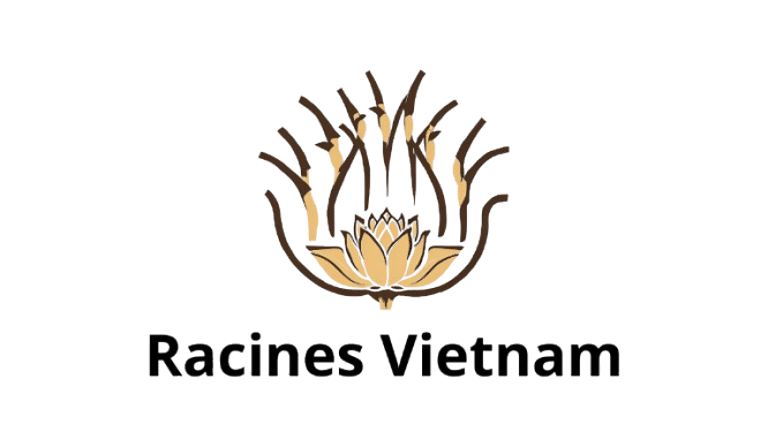“A blog created by an adopted Franco-Vietnamese for all those seeking to reconnect with their origins.”
Can You Be Both French and Vietnamese? | Adoption, Identity, and Roots – Racines Vietnam 2025
Born in Vietnam, raised in France. Discover a moving journey through adoption, identity, dual culture, and inner reconciliation. Can we truly belong to two worlds?
3/31/20253 min read


Can You Feel Both French and Vietnamese?
Two Roots. One Life.
I was born in Vietnam, in an orphanage I only know by name. Abandoned at a very young age, I was later adopted by a married couple living in Bordeaux, France. As an adopted child, my journey would be shaped by two worlds.
Today, I live in Ho Chi Minh City, my birthplace, carrying within me two cultures, two families, two histories. My own.
Adoption: Between Official Papers and Inner Truth
My adoption process was validated by the Tribunal de Grande Instance after an official adoption request, a home-study, and a demand for an agrément involving a social worker.
I was placed with an adoptive family through a plenary adoption. My original birth certificate was replaced. My adoptive parents received full parental rights, my family name changed, and I was granted French nationality.
On paper, I became their child, with the same legal rights as any biological child.
But in my heart, an invisible thread connected me forever to my birth parents.
Returning to Saigon: Reconnecting What Was Separated
I returned here, where my birth mother gave me life. I did not come seeking forgiveness or specific answers.
I came to reconnect with what official documents had erased, but what my body had never forgotten.
I reread my judgment of adoption, explored my adoption records through adoption agencies like the Agence Française de l'Adoption, and consulted archives from an Authorized Adoption Agency (OAA).
I realized I didn't need to know everything about my birth father, siblings, relatives, or biological parents to feel whole again.
Shared Testimonies: Building Peace After Adoption
"I was adopted at five months. Today, as a parent myself, I understand that parenting transcends biology."
"My stepparent adopted me through a stepparent adoption. I grew up without questioning our parent-child relationship."
"I was a foster child, later adopted by my foster-parent. Living with them taught me that family is about love, not blood."
Identity, Adoption, and Dual Cultures: Coexistence Is Possible
I am French and Vietnamese. I am an adoptee and legitimate. I am the child of an adoption project and a mystery involving my biological parents.
I respect the choice of my birth-parents who placed me for adoption, perhaps due to hardship, neglect, or lack of guardianship.
I am grateful to my adoptive parents, who navigated the adoption laws, underwent termination of parental rights of my biological family, and finalized the adoption through international adoption, domestic adoption, or even private adoption.
Whether born from infertility, single parenthood, kinship, unplanned pregnancy, or foster care transitions, I believe permanency and belonging are what matter most.
Through the paperwork, the support-groups, the openness or confidentiality, the grief, the hope, the tax-credit benefits, and sometimes the adoption assistance programs, adoption builds bridges that no law can erase.
And I want all these realities to live together — not in opposition, but in harmony.
7 Milestones for a Peaceful Adoption Journey
Recognize your origins without rejecting your adoptive story
Release the shame linked to abandonment, closed adoption, relinquishment, or transracial experiences
Explore your civil status, medical history, and adoption information with courage
Honor both your adoptive and biological families, including grandparents, siblings, and foster connections
Embrace possible reunions with birth family with an open heart
Testify and advocate for child welfare, adoption services, foster care system reforms, and adoption support groups
Accept what may remain confidential, including paternity, guardianship, and adoption records
FAQ – Adoption, Origins, and Family
What is the difference between simple and plenary adoption?
A plenary adoption erases the legal ties with the birth family, while a simple adoption maintains them legally, sometimes associated with open-adoption agreements.
Who validates an adoption in France?
The Tribunal de Grande Instance, after a home-study evaluation by a social worker, consent to adoption, and approval by the family council and departmental council.
What is an OAA?
An "Organisme Autorisé pour l'Adoption" (Authorized Adoption Agency) such as the Agence Française de l'Adoption, supporting domestic, private, and international adoptions.
Do adoptees have the same rights as biological children?
Yes. Once the finalization of adoption is completed, adoptees have full citizenship rights and legal equality.
Can unmarried or same-sex couples adopt in France?
Yes. Both unmarried and same-sex couples can adopt a child under French adoption laws.
What About You?
Were you adopted?
Do you live between two cultures, two worlds, two names?
Are you seeking to understand your past, your future, your family, your origins?
Share your story. Here, your voice matters.
Between Bordeaux and Saigon, I’ve learned that peace is not about absolute truth, but about inner reconciliation.
Racines Vietnam — Authentic Journeys, Deep Roots.
Main Menu:
Explorations:
Resources & Immersive Content
Community & Support
Legal & Languages
Contact & Social Networks
✉️ contact@racinesvietnam.com
📱 Instagram | Facebook | YouTube
©️ Copyright
© 2025 RacinesVietnam.com — Tous droits réservés
Site indépendant, créé sans code, hébergé par Hostinger
